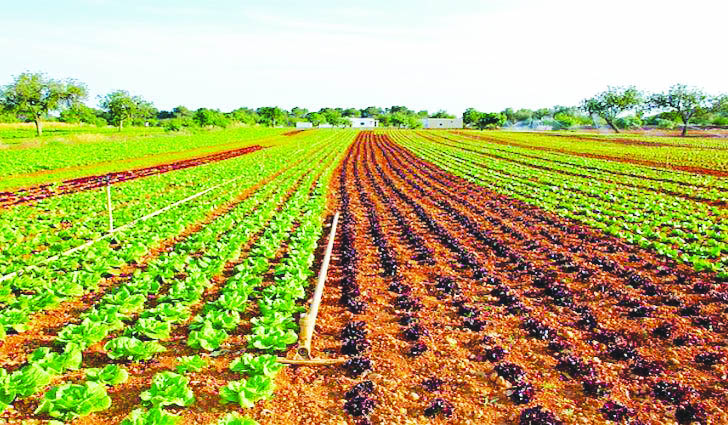By Ben Eguzozie, in Port Harcourt
Akwagaga Enyia, the acting managing director of Niger Delta Development Commission (NDDC) says the ongoing Livelihood Improvement Family Enterprises Programme in the Niger Delta (LIFE-ND) at the cost of $129.17 million, being driven by it (NDDC), in partnership with the International Fund for Agricultural Development (IFAD) is targeted at creating 38,250 jobs in the agricultural sector.
The LIFE-ND is a 12-year project planned with a financing gap of six years, with a first phase of six years, with parallel financing from NDDC, to cost US$30 million. An additional six years would be financed in the future by other partners and additional IFAD loan.
Abiodun Sanni, national coordinator of LIFE-ND said, apart from engaging 38,250 youths and women, it would also establish 900 enterprise incubators from among the target group. Overall, the project will target 50 percent male and 50 percent female.
Nadine Gbossa, IFAD country representative explained that the LIFE-ND programme would give additional opportunities to the youths and women in the Niger Delta region. She said IFAD was very keen to see the success of the programme; noting that the UN agency would give priority to it and collaborate with the other funding partners to ensure its success.
Enyia, the NDDC boss said the goal was to transform the rural economy of the Niger Delta region and improve the livelihood of the citizens of the oil region. She said the total project cost to be incurred during the 12-year implementation period, including price and physical contingencies, duties and taxes, is estimated at US$129.17 million.
According to her, the project directly is in line with the Federal Government’s agricultural policy and the strategic framework for youth employment and job creation. “The strategic framework addresses the large and growing number of restless unemployed youths, especially in the rural areas. It seeks inclusion of young people in profitable agribusiness,” she said.
Recall that presently the oil-rich Niger Delta, comprising 11 states, posts the highest unemployment rates in the country, with Akwa Ibom State, ironically the richest state by federation account allocation (FAAC) posting the highest rate of 37.7%, latest statistics from the National Bureau of Statistics (NBS) showed. Rivers, another high oil revenue earning state, places second.
The result of the region’s high unemployment has been the continued youth restiveness and militancy. Only recently, the nation lost $1.7 billion in the shutdown of OML 25 by mainly women and youths of the Kula communities in Rivers.
The LIFE-ND would be implemented in nine Niger Delta States of Rivers, Bayelsa, Akwa Ibom, Delta, Edo, Ondo, Abia, Imo and Cross River. It would commence with 10 local government areas and 10 communities per local government. Sanni said the LIFE-ND programme would enhance the income, food security and job creation for rural youths and women through agricultural enterprise development on a sustainable basis in the Niger Delta.
IFAD has a global mandate of eradicating poverty through agricultural interventions targeted at rural communities. “The FGN/NDDC/IFAD partnership is a novel one designed to improve the living standards of the rural populace. This in turn is expected to reduce rural-urban migration and criminal activities,” Enyia said.
George Ero, NDDC’s director of Agriculture and Fisheries, said the focus on agriculture would help to diversify the resource base of the country and reduce the dependence on oil and gas in the Niger Delta. He observed that the NDDC had always recognized agriculture as the way forward for Nigeria, adding that the agency would continue to support IFAD to integrate rural dwellers into agricultural entrepreneurship.









